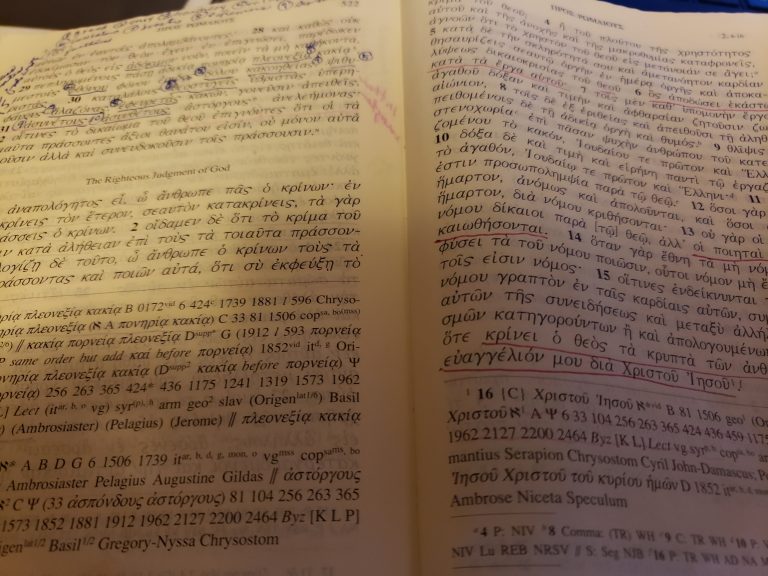Leviticus 4:1-5:13
It is not entirely helpful to include these two sections under the same heading, but there is certainly a break between 5:13 and 5:14, so the division is understandable as Baker does it.
We’re moving here to sacrifices that are required, first for inadvertent acts in chapter 4, and then for acts of omission that result in prolonged impurity (Milgrom: 307ff), only some of which are inadvertent in chapter 5. Milgrom maintains, I think convincingly, that the distinction in chapter 5 is that the acts in question result in prolonged impurity, and prolonged impurity gets worse.
Baker does well in presenting the major lesson I think we can take from these chapters, that wrongs are not just a personal thing, but they have a lasting impact on others. We have a tendency to think that if something was a mistake there is no real guilt attached. “I goofed,” is supposed to forgive all. Here errors, most notably amongst the leadership, even if inadvertent, are highlighted as damaging the entire congregation and particular as polluting the sanctuary, and thus the congregation’s relationship with God.
There is a secondary point, in that chapter 5 provides gradated levels of offerings and includes one even the poorest could bring–a grain offering. I think this should be discussed in terms of atonement, in which we regularly quote Hebrews 9:22, which in turn quotes Leviticus 17:11. Perhaps while blood provides the strongest metaphor for atonement, it is not the absolute requirement that some make it. An exception to the blood sacrifice as in Leviticus 5:11-13, would not in that case be a minor point. I’ll discuss this further when we get to Leviticus 17:11.
The OSB emphasizes the difference between the sins of the priesthood and the laity, and quotes St. John Chrysostom thus:
Wishing to show that sins receive more serious punishment by far when they occur in the case of the priest than in the case of the laity, Moses enjoins as great a sacrifice to be offered for the priest as for the whole people, and this amounts to a proof on his part, that the wounds of the priesthood need more assistance, that is, as great as those of all the people together.”
OSB further applies this to the modern priesthood as well. I could wish they would both quote the fathers more and would indicate the particular work. In this case I have been unable to find the reference by search at CCEL–I’m probably doing something wrong.
Again, I commend Baker for providing the elements that a preacher would need quickly and with the minimum of fuss. You will frequently find you want to know more, but there are other reference works for that purpose.
Abbreviations:
OSB – Orthodox Study Bible
NISB – New Interpreter’s Study Bible
Milgrom – Milgrom, Jacob. Anchor Bible: Leviticus 1-16.
Baker – Leviticus portion written by David H. Baker, of the Cornerstone Biblical Commentary on Leviticus, Numbers, and Deuteronomy.


I think when anyone speaks about a character like Moses, it is important to know there whole history and to take all events into consideration. Like the character of Moses, who was born in a time when war threatened. If we focus on this methodically, it is highly likely that when he went up the mountain, where he was in communion with the burning bushes, his people who were waiting for him were not only impatient, but jealous. Because he had a connection with God that they didn’t have.
Something that would be considered acceptable in those ages, but we as a society should be more civilized then that now. Nobody needs to wait for Moses in a modern age and should be responsible for there own personal connection with God. Rather then focus on Moses because he was appointed by God.